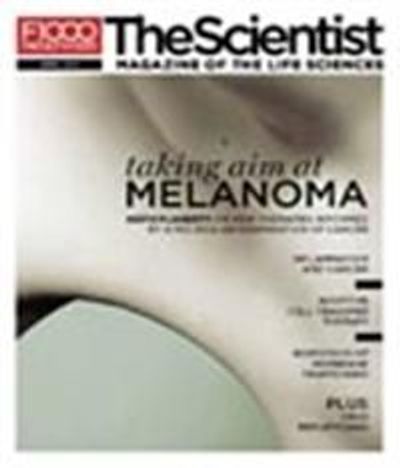The “Me Decade” of Cancer
Drugs that target specific tumors are harbingers of a new era of genetically informed medicine.

Thirty-five years ago journalist Tom Wolfe anointed the ‘70s in America the Me Decade—critiquing the quest for self-actualization via primal-scream therapy, high colonics, and mysticism. The age of social consciousness and hippie communalism had given way, he suggested, to a reawakening of that quintessentially American quality described by Tocqueville in the 1830s: individualism.
Four decades later, genomics has ushered in its own era of Me, revealing that heterogeneity is the rule, not the exception, when it comes to cancer. According to George Lundberg, former editor of JAMA and the Medscape Journal of Medicine, writing in this month’s Thought Experiment, our rapidly evolving knowledge about the uniqueness of each person’s genome demands a new model of publishing....
Harold Varmus, director of the National Cancer Institute (NCI), maintains that the preferred terminology is not “personalized medicine,” it’s “genetically informed medicine.” For example, oncologist Keith Flaherty of Massachusetts General Hospital unfolds the story of a BRAF mutation found in more than half of patients with metastatic melanoma. Basic research on the affected kinase signaling pathway coupled with translational drug discovery has led to targeted approaches that extend the lives of those with the mutation. For those without the mutation, therapy that would yield only toxic side effects can be avoided. The human side of this story, detailing the clinical trials and raising the ethical question about administering placebos, was told with dramatic effect last year in a New York Times series, “Target Cancer.”
Another inference of the Me Decade—this time invoking Wolfe’s more cynical usage—is suggested in the Critic-at-Large essay by NCI’s Nicholas P. Restifo and Megan Bachinski. They describe adoptive cell transfer (ACT) immunotherapy, involving the highly personal utilization of a cancer patient’s own cells: extracting them, expanding the population of tumor-reactive T cells, and re-infusing them. Using the word “cure” with extreme caution, the authors point to studies that have shown the potential for long-term eradication of tumors in one in five patients with metastatic melanoma. Despite these positive findings, they opine that because the therapy involves no clearly defined intellectual property—i.e., it derives from the patient’s own body—there is no enticement for pharma companies and their shareholders to invest in the treatment. They go on to suggest a resurgence of those hippie-inspired communal values: perhaps a consortium of cancer centers could work together to refine the technology and sponsor a licensing trial, with uptake by nonprofit dot-orgs to disseminate the proven treatment.

The evidence required for these new therapies via controlled trials—demonstrating benefits, proper dosage, and harms—remains critical. Yet the old rules involving randomized populations may not provide the best answers in the new era of the heterogeneous genome. The N-of-1, or single-patient, trial, introduced nearly four decades ago, is now gaining credence when the study design involves a placebo and is double-blind. As Joseph Kvedar, founder and director of the Center for Connected Health in Boston, bluntly stated in a recent blog post: “Of what value is it for me to know I was part of a clinical trial where 60% of recipients benefited from an intervention? What I really want to know is whether I will benefit (100% or 0).”
In his recently published “biography of cancer,” The Emperor of All Maladies, oncologist Siddhartha Mukherjee observes: “Cancer is indeed the load built into our genome, the leaden counterweight to our aspirations for immortality”—aspirations we all experience in the ultimate N-of-1 trial.
 |
Editor-in-Chief eic@the-scientist.com |
Interested in reading more?
